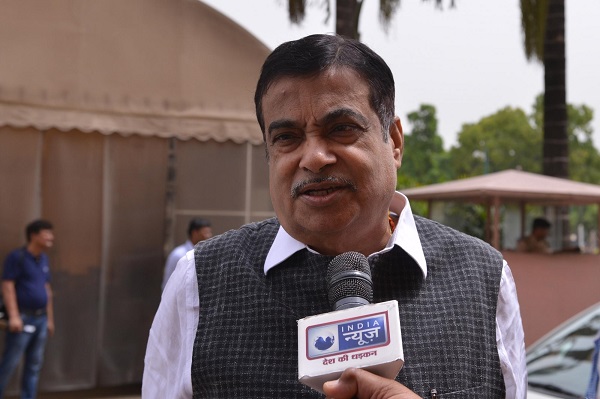New Delhi, Union Minister for Road Transport and Highways Nitin Gadkari told the Lok Sabha on Monday that over five lakh road accidents occur in the country annually in which one lakh people die.
“It is sad that India is on top in the number of deaths due to road accidents,” the minister said while taking up the Bill seeking amendment to the Motor Vehicles Act, 1988 with increased penalties for several offences such as driving under the influence of alcohol or drugs.
The Motor Vehicles Act, 1988 provides for grant of licences and permits related to motor vehicles, standards for motor vehicles and penalties for violation of these provisions.
The Minister said the Central government would facilitate a scheme for cashless treatment of road accident victims during ‘golden hour’. The Bill defines ‘golden hour’ as the time period of up to one hour following a traumatic injury, during which the likelihood of preventing death through prompt medical care is the highest.
The central government may also make a scheme for providing interim relief to claimants seeking compensation under third party insurance. The proposed Bill increases the minimum compensation in hit-and-run cases. In case of death, there is a provision for Rs 25,000 to Rs two lakh, and in case of grievous injuries, it is between Rs 12,500 and Rs 50,000.
The Bill proposes to increase penalties for several offences under the Act. The maximum penalty for driving under the influence of alcohol or drugs has been raised from Rs 2,000 to Rs 10,000.
If a vehicle manufacturer fails to comply with motor vehicle standards, the penalty could go up to Rs 100 crore, or imprisonment of up to one year, or both. Besides, if a contractor fails to comply with road design standards, the penalty will be a fine of up to Rs one lakh.
The government may increase the fines mentioned under the Act every year by up to 10 per cent.
The Bill provides for a National Road Safety Board, to be created by the Central government through a notification. The Board will advise the Central and state governments on all aspects of road safety and traffic management such as standards of motor vehicles, registration and licensing of vehicles, standards for road safety, and promotion of new vehicle technology.
The Central government may develop a National Transportation Policy in consultation with state governments. The policy will establish framework for road transport, develop a framework for grant of permits, and specify priorities for the transport system.










